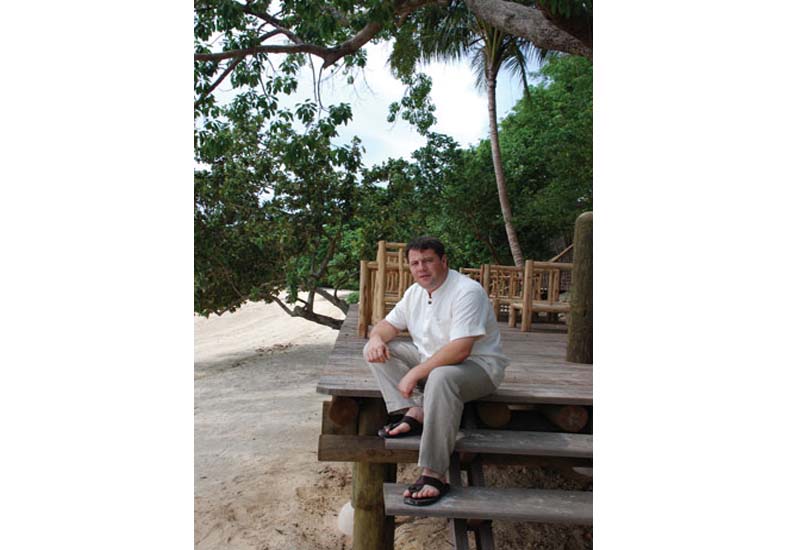As Six Senses Destination Spa, Phuket prepares to open its doors, Gemma Greenwood speaks to F&B director, Hunter Reynolds, about the science behind raw and spa cuisine and the challenges of growing and sourcing ingredients.
There are very few restaurants, let alone entire resorts that can claim their facilities are entirely spa-cuisine orientated.
But the new Six Senses Destination Spa, Phuket is just that, and is a good example of how spa cuisine works best when a holistic approach is adopted.
The entire resort, which is located on a private island, just 25 minutes by speedboat from Phuket, is focused on health and wellbeing and also aims to be carbon neutral and to eventually grow as much of its own produce as possible in a biodynamic environment - a principle that goes way beyond the organic school of thought.
When the wheels were set in motion to open this property, which represents the first of several destination spas planned for the Bangkok-based Six Senses group, it was imperative that the F&B director not only boasted spa cuisine experience, but would buy into the holistic destination spa concept.
This was no mean feat given that there is little formal training in the spa cuisine field.
Fortunately, Six Senses Destination Spas brand manager Ana Maria Tavares, who is known for her role in establishing one of Thailand's original true destination spas - Chiva-Som in Hua Hin - had someone in mind.

Advertisement
The man in question was Hunter Reynolds, who worked at Chiva-Som from 1998 to 2000 and, as executive chef, learned many tricks of this specialist trade.
"I started my career in Adelaide in South Australia where I worked for quite a few restaurants," he explains.
"From there I moved to London, where I worked for a large events catering firm - Admirable Crichton - and then worked my way through every city on the way to Turkey. I travelled across Europe and worked in several restaurants, which was a good way to experience different lifestyles and food."
After Turkey, Reynolds worked at Chiva-Som before moving to Cyprus where he opened a boutique hotel called Thalasso in Paphos.
"The cuisine focus there was local - Cypriot - with an international twist," he says.
"Our signature restaurant was a fish restaurant, which was very much based on local traditions and local cuisine but updated to create a healthier spa cuisine version."
His next stop was the Per Aquum resort in the Maldives where he developed the property's ‘Raw‘restaurant that served 50% raw cuisine and 50% seafood.
Reynolds' last stop before joining Six Senses was The Fortress Hotel in Galle, Sri Lanka, where he was responsible for food and beverage operations during the property's opening phase.
The Chiva-Som experience, says Reynolds, stood him in good stead for his current role, but Six Senses Destination Spa, Phuket, will take spa cuisine to a "different level" he claims.
"We are keeping everything as local and as organic as possible and we are also focusing on being more dynamic with the food," he says.
"We have a pizza oven and a tandoor, for example. This proves to clients that you can still eat a tasty pizza without it needing lashings of cheese. Our pizzas have a different impact on the palate to a normal pizza."
The challenge, says Reynolds, is to get "a consistent product" that appeals to a range of people.
"It's not that we are only catering to you if you are vegetarian or fishertarian (the resorts' two restaurants serve vegetarian and fish dishes only, with no meat in sight)," he says.
"We have to be innovative with our cuisine - it shows people that there are ways to eat without consuming three- to five-thousand calories per day."









 Search our database of more than 2,700 industry companies
Search our database of more than 2,700 industry companies









